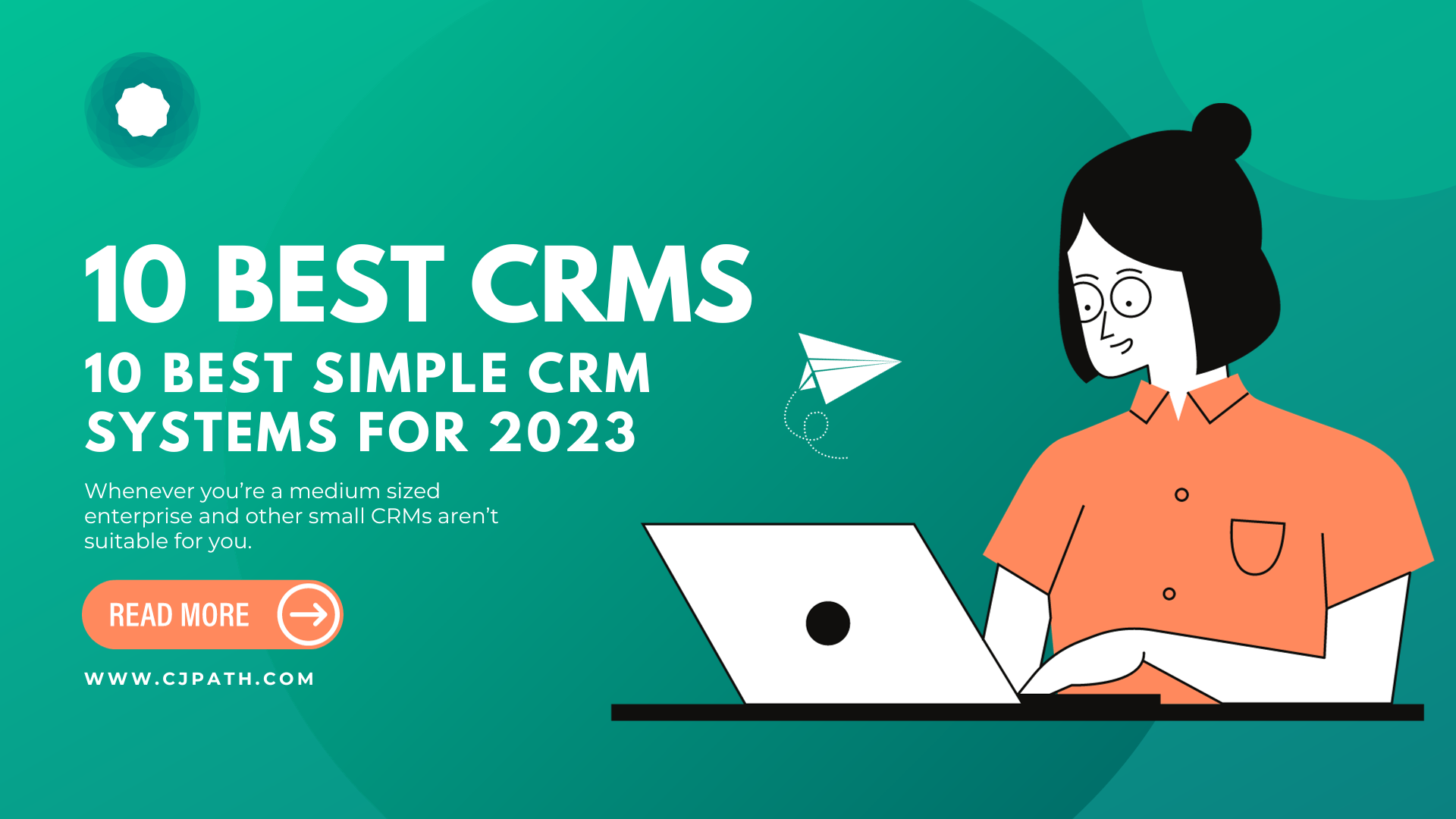
In today's fast-paced business world, the need for effective customer relationship management (CRM) systems is more critical than ever. Small and medium-sized enterprises (SMEs) are often on the lookout for simple yet powerful CRM solutions to streamline their operations and build stronger relationships with their customers. As we step into 2023, the CRM landscape is evolving, and numerous simple CRM systems are emerging to cater to the unique needs of SMEs.
10 Best Simple CRM Systems for 2023
Let's explore the top 10 simple CRM systems that are poised to make a significant impact in 2023:
1 - CJPath - Simple CRM Systems

CJPath CRM is a dynamic and versatile CRM solution designed to transform your sales operations.
With a robust focus on sales automation and performance optimization, CJPath empowers businesses of all sizes to streamline their sales strategies, enhance marketing efforts, and leverage the capabilities of advanced AI technology.
From comprehensive customer relationship management to AI-driven team performance evaluations and A/B testing automation, CJPath CRM is the ultimate tool to supercharge your sales success.
It offers businesses the insights and tools they need to excel in today's competitive market, making it a go-to choice for sales-driven organizations and marketing-savvy professionals.
chaPros of CJPath CRM:
- Comprehensive CRM: CJPath offers a wide range of features covering various aspects of customer relationship management.
- Sales-Oriented Tools: Provides specialized tools to enhance sales strategies, including automation, lead management, and deal tracking.
- User-Friendly Interface: CJPath is known for its intuitive and user-friendly interface, ensuring a smooth user experience.
- Integration Capabilities: It seamlessly integrates with various other business tools, streamlining workflows and data management.
- AI-Powered Automation: CJPath incorporates advanced AI technology for automating repetitive tasks, saving time, and improving efficiency.
- Team Performance Evaluation: Features advanced AI-driven evaluation of team performance, helping to optimize sales teams.
- Extensive Reporting: CJPath offers in-depth analytics and reporting, providing valuable insights into sales performance.
- A/B Testing Automation: Allows for effortless A/B testing to optimize sales and marketing strategies.
Cons of CJPath CRM:
- Costs for Additional Features: While the core CRM provides many features, additional functionalities may come at an extra cost.
- Learning Curve: Some advanced features may require time to master.
- Dependence on Internet Connectivity: Certain features may rely on an internet connection.
- Email Tracking Limitations: Users might experience some limitations with email tracking features.
Pricing:
- Basic Plan: Price: $29 per month. Suitable for individuals and small teams, offering essential CRM features.
- Professional Plan: Price: $99 per month. A comprehensive plan with advanced tools for growing businesses.
- Enterprise Plan: Price: $299 per month. Tailored for large enterprises, offering the most advanced features.
When to Use CJPath CRM:
- If you are looking for a comprehensive CRM solution with a strong focus on sales and marketing automation.
- When you aim to improve team performance with AI-driven evaluation and A/B testing automation.
- Particularly well-suited for businesses of various sizes, from small startups to large corporations.
When to Use an Alternative:
- If your business primarily requires a simple CRM solution without advanced sales and marketing automation features, a more basic CRM may suffice.
Expert Opinion:
- CJPath CRM excels in sales-oriented functionalities, with a robust focus on sales automation and performance optimization.
- It is an ideal choice for businesses aiming to streamline sales operations, enhance marketing strategies, and harness the power of AI technology.
- While it offers a comprehensive CRM solution, businesses with simpler CRM needs may find value in more streamlined alternatives.
2 - Monday.com
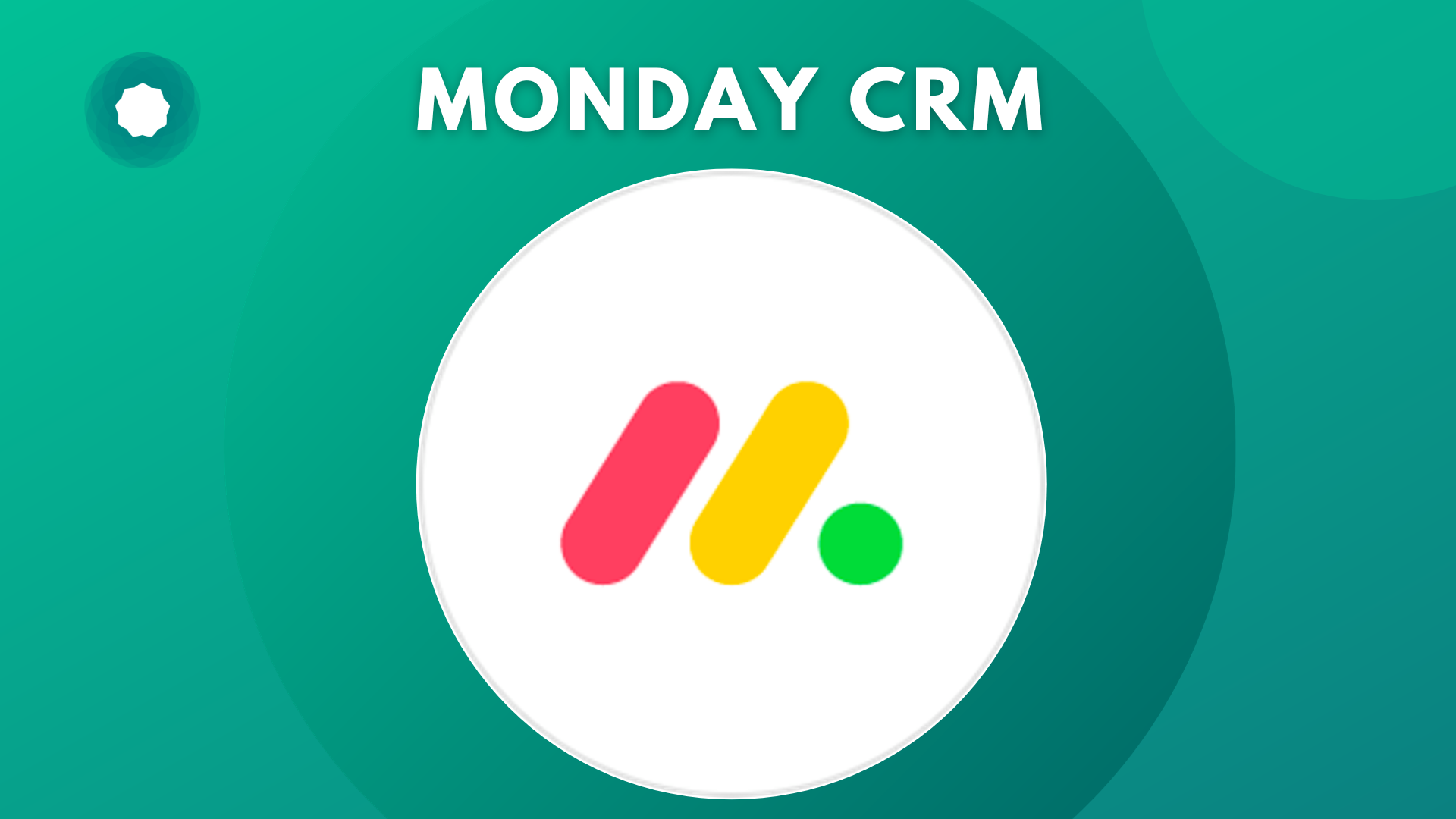
Pros
- Intuitive Interface: Monday.com features a user-friendly and intuitive interface, making it easy for teams to adopt and navigate.
- Highly Customizable: The platform offers a high degree of customization, allowing teams to tailor workflows and boards to their specific needs.
- Robust Collaboration Tools: Enhance team collaboration with a suite of tools designed to streamline communication and project tracking.
- Automation of Repetitive Tasks: Automate routine tasks to save time and reduce manual errors.
- Comprehensive Integrations: Connect Monday.com with a variety of other tools and services to create a seamless workflow.
- Scalability: The platform scales with your team, providing features and capabilities to support growth.
- Visual Project Tracking: Utilize visual boards and timelines to track project progress and milestones.
- Accessible Anywhere: Access your work and collaborate with your team from anywhere with Monday.com’s mobile app and web platform.
Cons
- Pricing: Some users may find the pricing model to be on the higher side, especially for small teams or startups.
- Learning Curve: New users may experience a learning curve when first adopting the platform.
- Limited Offline Access: Some functionalities may be limited when accessing the platform offline.
- Overwhelming for Simple Projects: The extensive features and customization options might be overwhelming for very simple projects.
Pricing:
- Free Plan with basic features.
- Paid plans starting at $30/month (billed annually) for additional features and support"
When to use Monday.com?
If your team relies heavily on visual project management and you need a tool that can bring together various aspects of your business in one place, Monday.com is a strong contender.
It's also a great option if you're looking to streamline your processes and enhance team collaboration.
When to use an alternative?
Consider looking for an alternative to Monday.com if your business requires more advanced CRM functionalities at a lower cost.
While Monday.com offers a wide range of features, it can become expensive as you add more users and require more advanced features.
If your team is larger and has more complex CRM needs, particularly in terms of lead and sales management, you might find more specialized CRM software more fitting.
Additionally, businesses on a tight budget might want to explore more cost-effective options, as the cost of Monday.com can quickly add up with additional users and features.
Our expert Opinion
Monday.com stands out for its visually intuitive interface, extensive customization options, and strong project management features.
It's a robust tool that brings together various aspects of a business, enhancing collaboration and efficiency.
However, it's important to carefully consider the total cost of ownership, as the pricing can become a significant factor for larger teams or those requiring advanced features.
Overall, Monday.com is a top choice for businesses prioritizing usability and visual project management in their CRM software.
3 - Freshsales
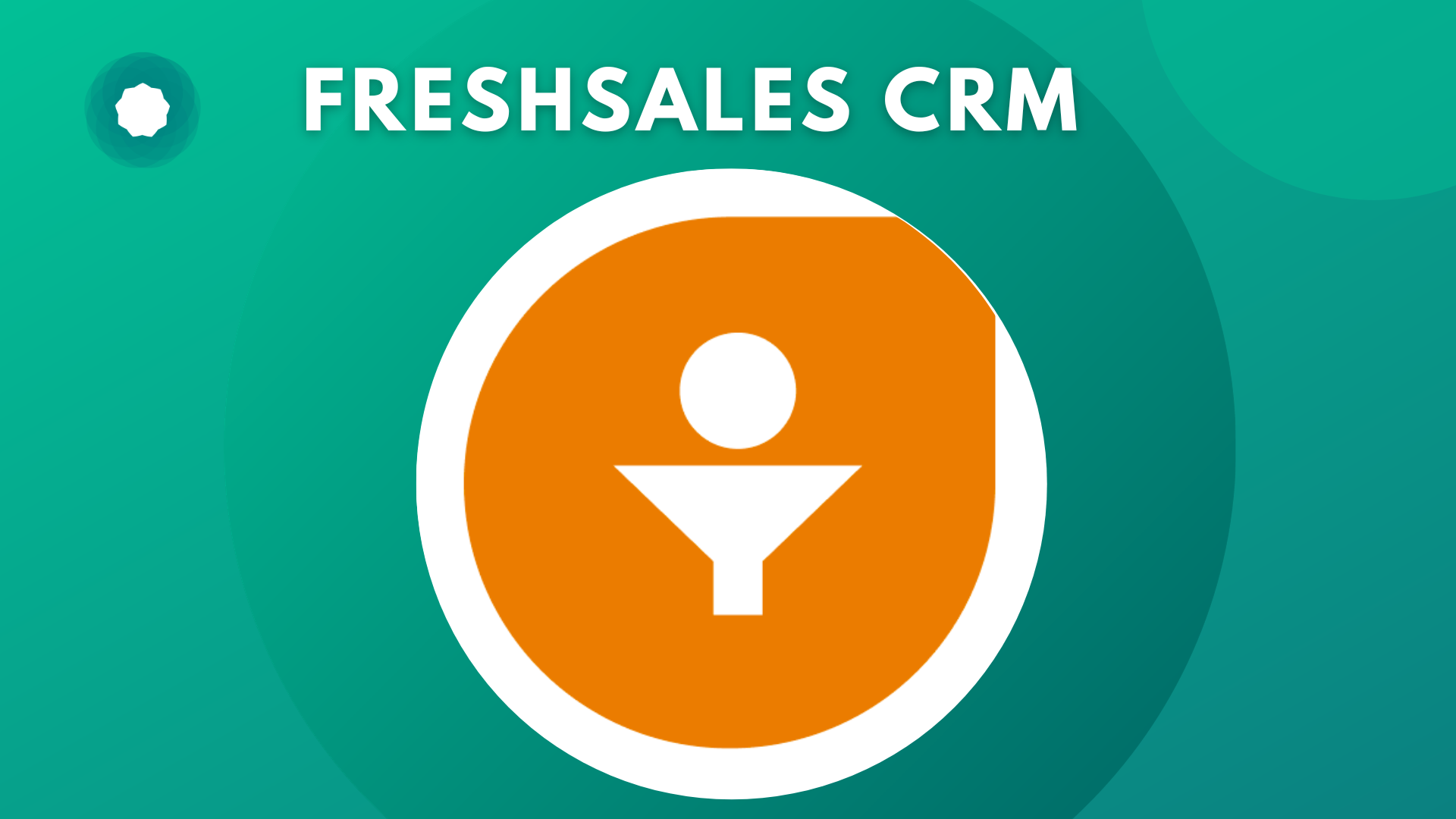
Pros
- Forever-Free Plan: FreshSales offers a permanently free plan, ensuring businesses of any size can access essential CRM features.
- Affordable Paid Plans: A variety of paid plans are available, catering to different business needs and scales.
- Comprehensive Feature Set: From AI-powered analytics to robust workflow automation, FreshSales provides a wide range of tools to support your sales cycle.
- User-Friendly Interface: Designed for quick adoption, the platform ensures ease of use, even for those new to CRM systems.
Cons
- Learning Curve: Especially when utilizing advanced features and analytics tools.
- May Overwhelm Small Teams: Extensive features might require customization to avoid overwhelm.
- Specialized Needs May Require Different Solutions: Businesses with very specific or niche requirements might need to explore specialized CRM solutions.
Pricing:
- Free Plan:
- Contact and account management
- Deal management
- Built-in chatbot
- Email, phone, inbound caller ID
- Mobile app with basic functionalities.
- Growth Plan ($15 per user per month):
- All features in the Free plan, plus:
- Visual sales pipeline
- AI-powered contact scoring
- Up to 2,000 bot sessions, five sales sequences
- 250 personalized bulk emails per day
- WhatsApp Business integration, activity dashboard
- 20 workflows, 2GB of storage per user
- Two-way email sync, call recording
- Messaging integrations.
- Basic custom features like custom fields, customer profile avatars, integration with SMS and Facebook Messenger, up to 20 workflows, two-way email sync, and up to five sales sequences.
- Pro Plan ($39 per user per month):
- All features in Growth, plus:
- Multiple sales pipelines
- Time-based workflows, 10 sales sequences
- 1,000 personalized bulk emails per day
- AI-powered deal insights, up to 3,000 bot sessions
- Territory management, offline access
- 50 workflows, 5GB of storage per user
- Advanced call queues, lead-gen bot, and answer bot.
- Behavioral segmentation, offline events, Freddy AI features, integration with WhatsApp and Apple Business Chat, up to 50 workflows, custom fields, up to 50 sales teams, sales goals, up to 5GB per user, advanced call queues, and conference calling.
- Enterprise Plan ($69 per user per month):
- All features in Pro, plus:
- Custom modules, AI-based forecasting
- Audit logs, up to 5,000 chatbot sessions
- Dedicated account manager, customer profile enrichment
- 100GB of storage per user, 25 sales sequences
- 5,000 personalized bulk emails per day
- Holiday call routing, website tracking.
- Advanced CRM customization, website and in-app tracking, 10 custom modules, field-level permissions, up to 100 workflows, up to 100 sales teams, 100 GB per user, sales forecasting, advanced calling features like warm transfer, holiday routing, and queue callback.
Furthermore, Freshworks CRM also provides optional features at additional costs such as:
- Additional workflows ($5 per user, per month)
- Additional phone credits (starting at $25 per user, per month)
- Custom price quotes ($19 per user, per month).
For businesses looking to include marketing teams in the software, there is the Freshworks Suite with a free plan accommodating up to 100 marketing contacts.
There are also three paid plans (Growth, Pro, and Enterprise) ranging from $15 to $69 per user per month, each with an increasing range of features and marketing contacts limit.
When to use Freshsales?
Choose FreshSales (Freshworks CRM) when you need a comprehensive and scalable CRM solution, complete with extensive sales and marketing automation, AI-driven insights, and a wide array of integration options.
It's ideal for businesses of all sizes that require a robust set of features, mobile accessibility, and a platform that can grow with their needs.
When to use an alternative?
Consider alternative CRM platforms if your team prefers a simpler, more streamlined set of features, or if your business has highly specialized requirements that might be better served by a niche CRM solution. Additionally, smaller teams or businesses on a tight budget might opt for a CRM with a less steep learning curve and more focused customer support.
Our expert Opinion
The platform's scalability ensures it can accommodate the evolving needs of growing businesses, while its extensive integration options and mobile accessibility enhance overall efficiency and connectivity.
However, potential users should be mindful of the learning curve associated with the platform, particularly for advanced features.
4 - Method: CRM
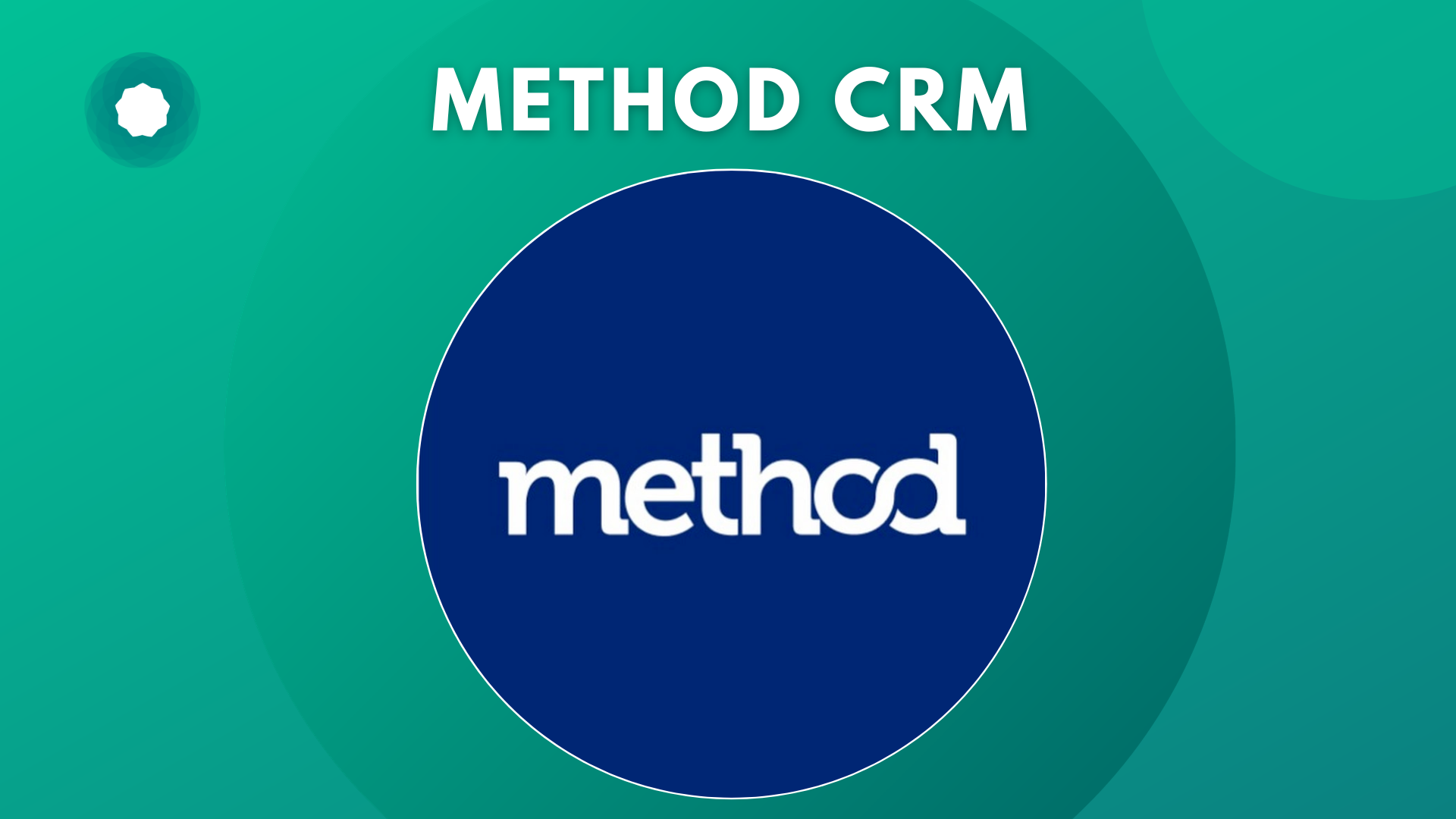
Pros
- Robust Integration with Accounting Software: Method:CRM excels in its seamless integration with popular accounting tools like QuickBooks and Xero. This integration streamlines financial and customer relationship management, ensuring consistency and accuracy across business operations.
- User-Friendly Interface: The platform’s interface is designed to be intuitive, aiming to enhance user experience and facilitate ease of use, which is particularly beneficial for CRM newcomers or businesses looking to adopt a straightforward system.
- Commitment to Continuous Improvement: Method:CRM’s transition from its classic version to a newer, more user-friendly version highlights the company’s dedication to evolving and adapting based on user needs and industry trends.
- Versatile API for Custom Integrations: The availability of a RESTful API allows businesses to create custom integrations, enhancing flexibility and ensuring that the CRM can work seamlessly with other tools and systems.
- Strong Focus on Contact Management: The platform places a significant emphasis on managing customer interactions and sales activities, providing users with robust tools to maintain and nurture customer relationships.
Cons
- Potential Learning Curve: Despite its user-friendly design, new users may face a learning curve as they acclimate to the platform’s features and capabilities.
- May Lack Comprehensive Marketing Tools: Compared to other CRM platforms, Method:CRM might not offer as extensive a set of marketing tools, which could be a limitation for businesses looking to conduct in-depth marketing campaigns or analytics.
- Pricing Could Be Prohibitive for Small Businesses: With a starting price of $25 per user per month, smaller businesses or startups operating on tight budgets might find the platform to be a more expensive option, particularly if they are not fully utilizing the integration capabilities with QuickBooks or Xero.
- Dependence on Specific Accounting Tools: While the integration with QuickBooks and Xero is a major strength, businesses that do not use these specific accounting tools might not benefit from some of the platform’s unique features.
- Limited Features in Base Plan: The base pricing plan might offer limited features, potentially necessitating upgrades to more expensive plans for access to full functionality.
Pricing:
- Basic Plan:
- Cost: $25 per user per month
- Features: Access to core CRM functionalities, contact management, integration with QuickBooks and Xero, and basic reporting tools.
- User Limit: No limit
- Data Limit: Standard data storage
- Support: Access to online resources and email support
- Pro Plan:
- Cost: $44 per user per month
- Features: All features in the Basic Plan, plus advanced contact management, sales pipeline management, additional integrations, and enhanced reporting and analytics.
- User Limit: No limit
- Data Limit: Increased data storage
- Support: Priority email support and access to phone support
- 3. Professional Plan:
- Cost: $64 per user per month
- Features: All features in the Pro Plan, plus full access to API for custom integrations, advanced automation and workflow management, and premium support.
- User Limit: No limit
- Data Limit: Increased data storage
- Support: Premium support with dedicated account management
- 4. Enterprise Plan:
- Cost: Custom pricing
- Features: All features in the Business Plan, plus custom development options, advanced security features, and tailored onboarding and training.
- User Limit: No limit
- Data Limit: Unlimited data storage
- Support: Dedicated support and account management, 24/7 availability
When to use Really Method:CRM?
When you have a business that heavily relies on QuickBooks or Xero for their accounting needs and are looking for a CRM solution that integrates seamlessly with these platforms.
If you have tech savvy staff you can always use the RESTful API to develop custom integrations can tailor Method:CRM to their specific needs.
When to use an alternative?
If your business requires a comprehensive set of marketing tools, is sensitive to pricing, or does not utilize QuickBooks or Xero, an alternative CRM solution might be a better fit.
Larger enterprises or businesses with complex CRM needs might find Method:CRM’s feature set limiting and might benefit from a more robust CRM platform.
Our expert Opinion
Method:CRM is a robust and user-friendly CRM solution, particularly well-suited for businesses that rely heavily on QuickBooks or Xero.
While it excels in contact management and integration capabilities, potential users should carefully consider their marketing needs and budget constraints when evaluating this CRM option.
5 - Keap

Pros
- All-in-One CRM Solution: Keap stands out for its integrated approach, combining CRM, sales, and marketing functionalities into a single platform. This integration streamlines business operations, reducing the need for multiple disparate systems and ensuring consistency across different business functions.
- Ease of Use: The platform is renowned for its user-friendly design and ease of navigation, making it accessible even to those with limited technical expertise or those new to CRM software. This emphasis on simplicity helps to reduce the learning curve and ensures quick adoption.
- Continuous Innovation: Keap demonstrates a strong commitment to continuous improvement, regularly updating its features and functionalities based on user feedback and industry trends. This approach ensures that the platform remains current and continues to meet the evolving needs of its users.
- Comprehensive Feature Set: Despite its simplicity, Keap offers a robust set of features that cover a wide range of CRM, sales, and marketing needs, providing users with a comprehensive toolset to manage their customer relationships and business operations.
Cons
- Potential Learning Curve: Despite its user-friendly design, new users may face a learning curve as they acclimate to the platform’s features and capabilities.
- Limited Customization: While Keap offers a variety of features, it may fall short in terms of customization options, especially when compared to more complex CRM systems. This limitation could be a drawback for businesses with unique or highly specific requirements.
- Pricing Considerations: With pricing starting at $40 per user per month, Keap might be on the pricier side, especially for small businesses or startups operating on tight budgets. The cost could be a significant factor in the decision-making process, particularly if a business is not fully utilizing all the features offered.
- Potential Overwhelm for Small Operations: For very small businesses or solo entrepreneurs, the comprehensive feature set and integrated functionalities, while beneficial, could potentially be overwhelming or more than what is actually needed for simpler operations.
Pricing:
- Basic Plan:
- Cost: $25 per user per month
- Features: Access to core CRM functionalities, contact management, integration with QuickBooks and Xero, and basic reporting tools.
- User Limit: No limit
- Data Limit: Standard data storage
- Support: Access to online resources and email support
- Pro Plan:
- Cost: $44 per user per month
- Features: All features in the Basic Plan, plus advanced contact management, sales pipeline management, additional integrations, and enhanced reporting and analytics.
- User Limit: No limit
- Data Limit: Increased data storage
- Support: Priority email support and access to phone support
- 3. Professional Plan:
- Cost: $64 per user per month
- Features: All features in the Pro Plan, plus full access to API for custom integrations, advanced automation and workflow management, and premium support.
- User Limit: No limit
- Data Limit: Increased data storage
- Support: Premium support with dedicated account management
- 4. Enterprise Plan:
- Cost: Custom pricing
- Features: All features in the Business Plan, plus custom development options, advanced security features, and tailored onboarding and training.
- User Limit: No limit
- Data Limit: Unlimited data storage
- Support: Dedicated support and account management, 24/7 availability
When to use Really Method:CRM?
Keap is particularly well-suited for small to medium-sized businesses seeking a comprehensive and integrated CRM solution that combines contact management, sales automation, and email marketing.
Keap is a good choice for businesses that value continuous innovation and regular updates to features and functionalities, ensuring that the platform stays current with industry trends.
When to use an alternative?
Businesses with unique or highly specific requirements that require extensive customization might find Keap’s customization options limited, and might benefit from exploring other CRM platforms that offer more flexibility in this area.
Also, if your business is heavily invested in a particular software ecosystem or requires specific integrations not offered by Keap, an alternative CRM solution that aligns better with your existing tools and workflows might be more suitable.
Our expert Opinion
In balancing the strengths and considerations, Keap emerges as a well-rounded CRM solution, particularly suited for businesses seeking an integrated approach to manage their customer relationships, sales, and marketing efforts.
Its user-friendly design and commitment to continuous improvement are significant assets, though potential users should carefully consider their budget and customization needs when evaluating the platform.
6 - Zoho CRM
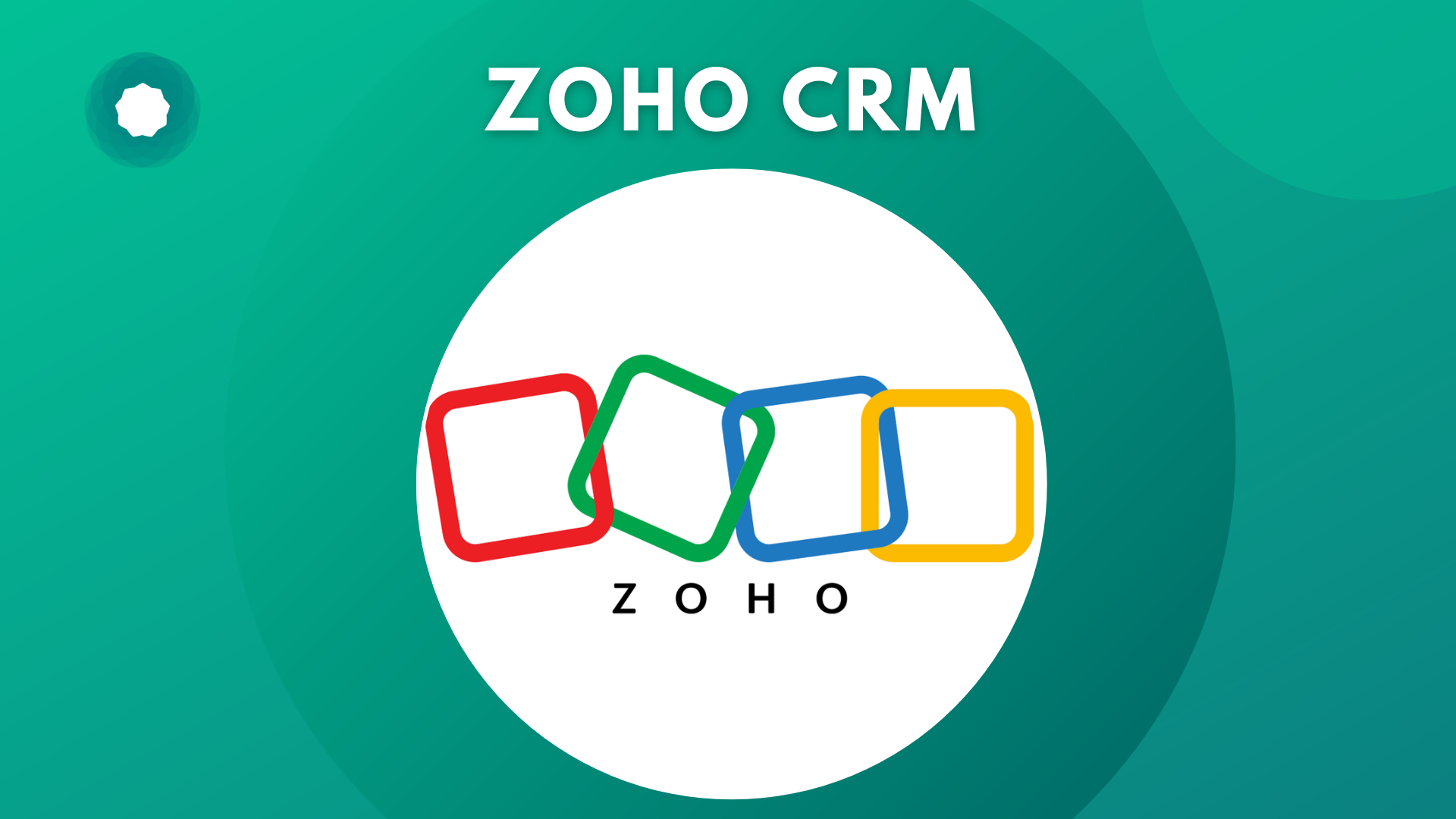
Pros
- Comprehensive Feature Set and Regular Updates: Zoho CRM offers an extensive range of features covering sales automation, marketing automation, customer support, and inventory management. The platform is regularly updated to introduce new functionalities and enhance existing ones, ensuring that businesses have access to the latest tools for managing customer relationships.
- User-Friendly Interface and Mobile Accessibility: The platform is renowned for its intuitive and easy-to-navigate user interface, designed to provide a seamless user experience for users of all technical backgrounds. Additionally, Zoho CRM's mobile applications ensure that users can access and manage their CRM data on the go, staying connected and productive even while away from the office.
- Scalability and Adaptability to Resource Demands: Zoho CRM is built to grow with your business, providing scalability to accommodate an increasing number of users and larger customer databases. The platform adapts to the changing demands of businesses, ensuring a smooth transition as companies expand and evolve.
- Affordability and Flexible Pricing: With a free plan available and various affordable paid plans, Zoho CRM ensures that businesses only pay for the features they need. The platform's pricing is tailored to cater to businesses of different sizes, making advanced CRM functionalities accessible to small and medium-sized enterprises.
- Strong Security Measures and Commitment to Compliance: Zoho CRM employs robust security measures, including encryption, two-factor authentication, and regular security audits, to protect user data and ensure the integrity of customer information. The platform is committed to complying with global data protection regulations, providing users with peace of mind regarding the security of their data.
- Integration with Zoho Ecosystem and Third-Party Applications: Being part of the Zoho ecosystem, Zoho CRM seamlessly integrates with other Zoho products, providing a unified experience across various business applications. Additionally, the platform supports integrations with popular third-party applications, enhancing its functionality and versatility.
- Investment in Artificial Intelligence and Emerging Technologies: Zoho CRM is at the forefront of integrating artificial intelligence technologies to automate routine tasks, provide insightful analytics, and enhance customer interactions. The platform's commitment to embracing emerging technologies ensures that businesses have access to cutting-edge tools for optimizing their CRM processes.
- Extensive Training Resources and Community Support: Zoho CRM offers a wealth of training materials, resources, and a strong community of users and developers. These resources help users stay up-to-date with the latest features, best practices, and innovative ways to leverage the platform for business success.
- Global Infrastructure and Reliable Performance: Backed by a robust global infrastructure, Zoho CRM ensures reliable performance and availability for users worldwide. The platform's commitment to providing a stable and efficient CRM solution contributes to its reputation as a trusted choice for businesses.
- User Experience Enhancements and Customization: Zoho CRM is continuously updated to improve the user experience, making the platform more intuitive and efficient. Users can also tailor the CRM to their specific industry needs and workflows, ensuring that the platform aligns seamlessly with their business processes.
- Adaptability and Future-Proofing: The platform is designed to be future-proof, integrating innovative features and technologies to stay ahead in the CRM space. Zoho CRM’s adaptability ensures that businesses can rely on the platform to meet their evolving needs, providing a sustainable solution for customer relationship management.
- Reliable Customer Support and Vendor Reputation: Zoho CRM is backed by reliable customer support and has established a strong reputation as a leading CRM solution. The platform's commitment to user satisfaction and continuous improvement reflects its dedication to providing an exceptional CRM experience.
Cons
- Limited Advanced Features in Lower Tiers: While Zoho CRM offers a variety of pricing plans, some of the advanced features and AI capabilities are reserved for the higher-tier plans. This could limit smaller businesses or startups with tight budgets from accessing the full range of functionalities.
- Learning Curve and Complexity: Due to its extensive feature set and customization options, new users might experience a learning curve when starting with Zoho CRM. The platform's rich capabilities, while beneficial, could be overwhelming, especially for those new to CRM systems or transitioning from simpler solutions.
- Integration Limitations: While Zoho CRM provides strong integration with other Zoho products and various third-party applications, there might be limitations or complexities involved in integrating with certain external systems or tools, potentially hindering seamless operation.
- Customer Support Variability: Some users have reported variability in the customer support experience, with instances of delayed responses or challenges in resolving complex issues. Access to prompt and effective support is crucial, especially for businesses relying heavily on their CRM for daily operations.
- Mobile App Limitations: While Zoho CRM offers mobile applications for on-the-go access, some users have noted that the mobile apps might not provide the full functionality available on the desktop version, which could impact productivity for mobile-dependent users.
- Data Import and Export Challenges: Users have reported occasional challenges related to importing and exporting data, which could be a concern for businesses looking to migrate data to or from Zoho CRM.
Pricing:
- The Free Plan is available at no cost and allows up to three users. While individual users are not allocated any specific storage, the organization as a whole is provided with 10MB of storage space. Basic support is available for users on this plan. There is no additional information or limitations specified.
- The Standard Plan costs $14 per user per month and offers unlimited user access. Similar to the Free Plan, it does not allocate storage space to individual users but provides the organization with 200MB of storage. Users on this plan can avail standard support. It is recommended for a maximum of 100 users.
- Priced at $23 per user per month, the Professional Plan also allows an unlimited number of users. Each user gets 20MB of storage, and the organization is allocated a total of 10GB. Support is enhanced, with options for live chat, phone, and email assistance. No additional limitations or information are provided.
- The Enterprise Plan is available at $40 per user per month, supporting an unlimited number of users. Each user receives 50MB of storage. Organizations with fewer than 200 users get 10GB, while those with more than 200 users receive 20GB of total storage. Standard support is provided, and there are no additional specifications mentioned.
- Lastly, the Ultimate Plan is priced at $52 per user per month, permitting an unlimited number of users. Each user is allocated 100MB of storage, with the organization receiving 10GB for fewer than 200 users or 20GB for more than 200 users. This plan features 24/7 live support, ensuring assistance is always available. There are no additional limitations or details specified.
When to use Zoho CRM?
Zoho CRM is well-suited for small to medium-sized businesses that might be having budget constraints and the requirement of a high degree of customization in your CRM.
Maybe if you are already using other Zoho products or plan to do so, Zoho CRM would be an ideal choice due to its seamless integration with the Zoho ecosystem. It is definitely designed for people looking for an All-in-One solution, not only as a CRM, but maybe as a full ERP option.
When to use an alternative?
When you’re a larger enterprise or busines with complex CRM needs might find more value in more robust solutions like Salesforce or Microsoft Dynamics 365, which are designed to handle complex workflows and large volumes of data.
If your business relies heavily on integrations with a wide variety of third-party applications, CRM solutions known for their extensive integration capabilities might be more suitable.
Our expert Opinion
Overall, Zoho CRM presents a compelling choice for businesses seeking a comprehensive, customizable, and cost-effective CRM solution.
Its balance of features, usability, and scalability, combined with strong integration capabilities and a commitment to innovation, makes Zoho CRM a standout option in the CRM landscape.
7 - Less Annoying CRM (LACRM)

Pros
- Simplicity and Ease of Use: LACRM is designed to be intuitive, making it easy for users of all levels to navigate and utilize the platform. This simplicity ensures a short learning curve, enabling teams to quickly adopt and benefit from the CRM.
- Transparent Pricing: With a clear and straightforward pricing model of $15 per user per month, LACRM provides affordability without any hidden fees, making it an economical choice for small businesses.
- Focus on Essential CRM Functions: The platform concentrates on core CRM functionalities, such as contact and company management, ensuring users have the necessary tools to manage customer relationships effectively.
- User-Centric Design: LACRM is built with the user in mind, offering a clean and clutter-free interface that enhances the overall user experience.
- Consistent Product Updates: Regular updates demonstrate LACRM’s commitment to maintaining a modern and efficient platform, ensuring users have access to the latest features and improvements.
Cons
- Limited Advanced Features: LACRM may not offer the same range of advanced features as some other CRM platforms, which could be a drawback for businesses with more complex needs.
- Potential Need for Additional Tools: Due to its focus on simplicity and essential functions, users might find the need to integrate additional tools or services to fulfill all their CRM requirements.
- Limited Customization: The platform’s simplicity could come at the cost of customization options, potentially limiting how businesses can tailor the CRM to their specific needs.
- Not Ideal for Large Enterprises: LACRM’s design and feature set might be better suited for small to medium-sized businesses, and larger enterprises may find it lacks the scalability and complexity they require.
Pricing:
Less Annoying CRM (LACRM) offers a straightforward pricing model with a single plan priced at $15 per user per month.
There are no hidden fees, annual contracts, or tiered pricing structures.
Additionally, LACRM provides a 30-day free trial for you to explore its features before committing to a subscription.
When to use Freshsales?
When you’re a small business seeking a basic, affordable, and user-friendly Customer Relationship Management (CRM) solution.
When to use an alternative?
When its limited customization and stripped-back feature list doesn’t cater to the needs of your growing or larger businesses with more complex CRM requirements.
Our expert Opinion
In the final analysis, Less Annoying CRM is a commendable option for those who value simplicity above all else.
But for businesses looking to make a quantum leap, to really dig into the nitty-gritty of customer relationship management and harness the full power of CRM technology, the journey with LACRM may be a stepping stone rather than a final destination.
8 - Really Simple Systems
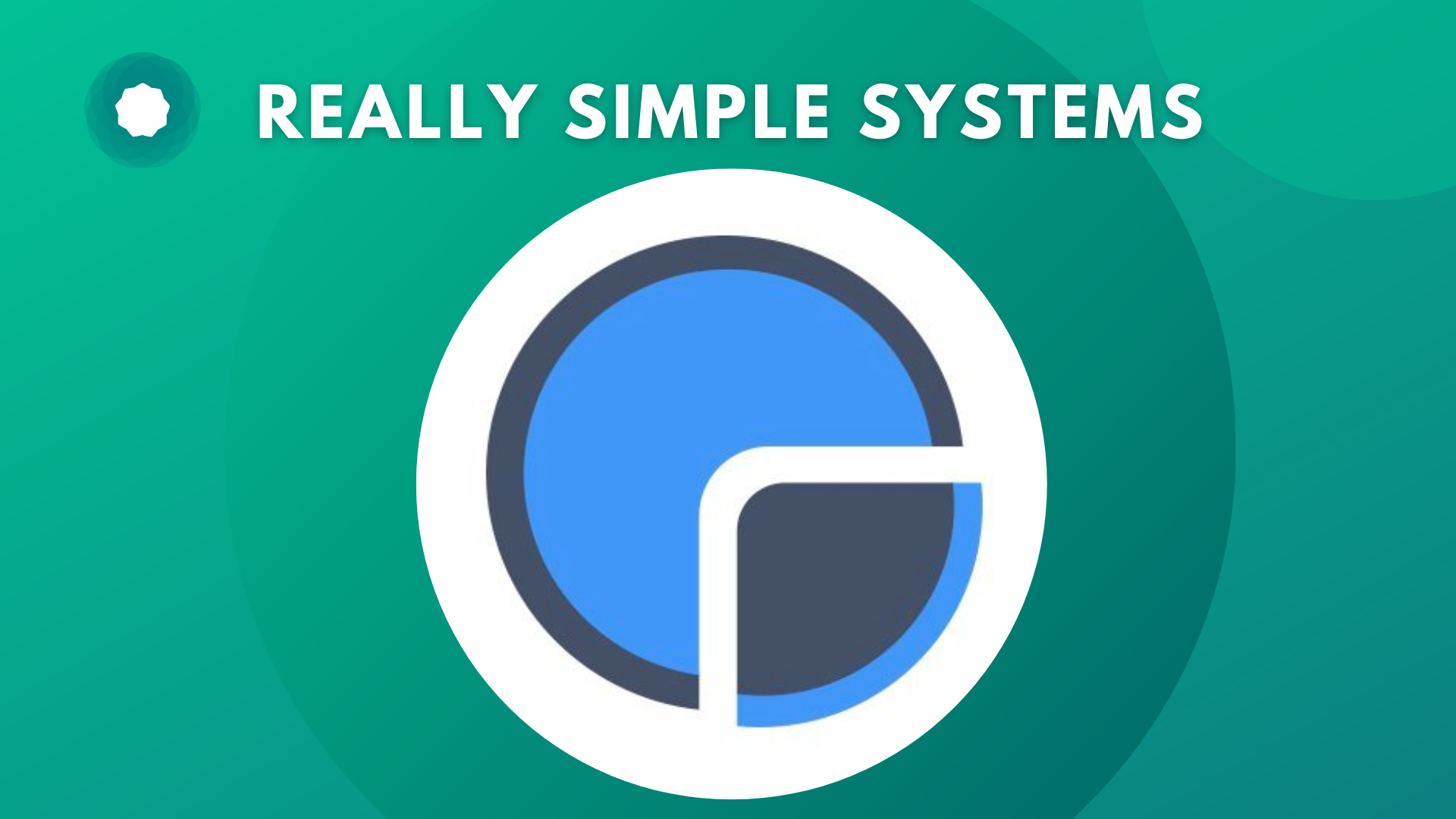
Pros
- User-Friendly Design: RSS is praised for its intuitive interface, ensuring a smooth user experience.
- Free Plan Available: Offers a forever-free plan, providing access to essential CRM features without any cost.
- Continuous Improvement: Demonstrates a commitment to improving the platform based on user feedback.
Cons
- Limited Advanced Features: While RSS offers a user-friendly experience, it may not provide the advanced features available in other CRM solutions.
- Potential for Scalability Issues: As a business grows, the need for more sophisticated CRM functionalities may arise. RSS might not be as well-suited for large enterprises or businesses with complex CRM needs.
- Basic Integration Capabilities: While RSS provides an API for integration, it may not offer as extensive integration options or out-of-the-box connections as some other CRM solutions.
- Focused Feature Set: The platform’s emphasis on simplicity and ease of use means that it may lack some of the specialized features or industry-specific tools that other CRM systems provide.
- Limited Customization: Users looking for extensive customization options to tailor the CRM to their specific workflows and processes might find RSS somewhat restrictive.
Pricing:
- Free Plan:
- Cost: $0 per user per month
- Features: Access to basic CRM functionalities, contact management, and limited reporting.
- User Limit: Up to 2 users
- Data Limit: Limited data storage
- Support: Access to online resources and community support
- 2. Starter Plan:
- Cost: $14 per user per month (billed annually)
- Features: All features in the Free Plan, plus additional contact and deal management tools, basic automation, and enhanced reporting.
- User Limit: No limit
- Data Limit: Increased data storage
- Support: Email support
- 3. Professional Plan:
- Cost: $30 per user per month (billed annually)
- Features: All features in the Starter Plan, plus advanced automation, integration options, and access to the API.
- User Limit: No limit
- Data Limit: Increased data storage
- Support: Priority email support and phone support
- 4. Enterprise Plan:
- Cost: Custom pricing
- Features: All features in the Professional Plan, plus custom integrations, advanced analytics, and dedicated account management.
- User Limit: No limit
- Data Limit: Unlimited data storage
- Support: Dedicated support and account management
When to use Really Simple Systems?
If your primary focus is on managing customer relationships, sales, and essential marketing activities without the need for extensive customization or advanced features, RSS is a strong contender.
The platform is particularly well-suited for businesses looking to centralize and organize their customer information in a straightforward, accessible manner.
Moreover, RSS’s commitment to continuous improvement based on user feedback makes it a viable option for businesses that want a CRM system that evolves and adapts over time.
And with a free plan available, it’s an economical choice for startups or small businesses operating on a tight budget.
When to use an alternative?
If customization and the ability to tailor the CRM to your specific industry or business processes are high priorities, an alternative CRM with more extensive customization options might be a better fit.
Additionally, businesses planning for significant growth in the near future should consider a CRM platform that can seamlessly scale and provide advanced functionalities as their needs evolve.
Our expert Opinion
In essence, Really Simple Systems is a CRM that knows its strengths and plays to them well.
It’s a safe haven for small businesses navigating the often overwhelming world of CRM, providing a sanctuary of simplicity and ease of use.
However, for businesses on the fast track, looking to leverage the full spectrum of CRM capabilities, the journey with Really Simple Systems may be a stepping stone rather than a final destination.
9 - Pipedrive
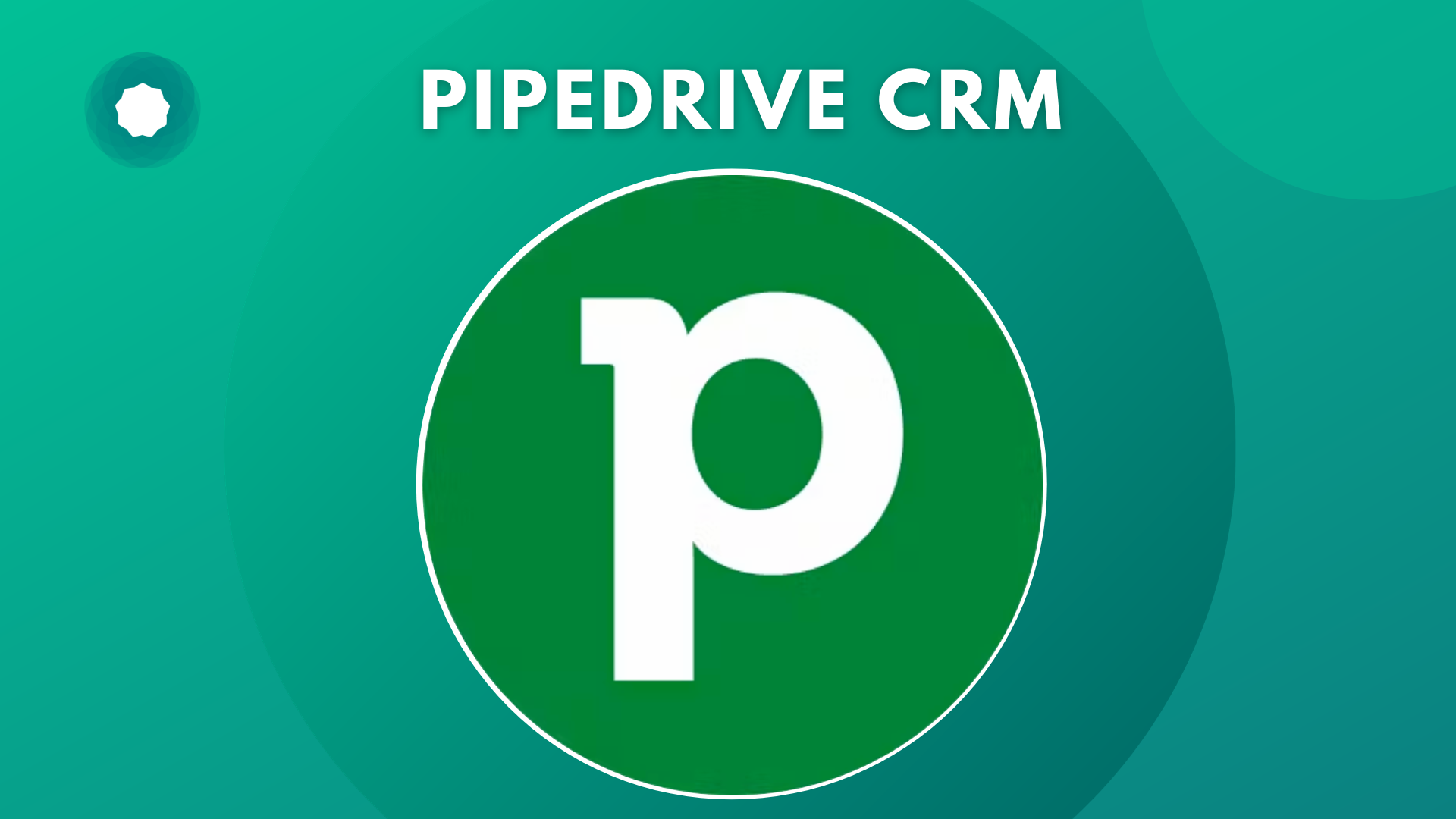
Pros
- User-Friendly Interface: Pipedrive offers an intuitive and easy-to-navigate interface, ensuring a smooth user experience.
- Customizable Pipelines: Tailor your sales pipelines according to your specific business processes and preferences.
- Automation of Repetitive Tasks: Reduce manual work and save time by automating routine tasks and activities.
- Insightful Reporting and Analytics: Access detailed reports and analytics to gain insights into your sales performance and make informed decisions.
- Mobile Accessibility: Manage your deals and stay connected with your team on the go with Pipedrive’s mobile app.
- Reliable Customer Support: Benefit from Pipedrive's responsive and helpful customer support team.
Cons
- Limited Features in Basic Plans: Some advanced features are only available in higher-tier plans.
- Learning Curve for New Users: New users may require some time to fully grasp all of Pipedrive’s features and capabilities.
- Limited Customization in Reporting: Reporting features may offer limited customization options for specific needs.
Pricing:
- Essential Plan:
- Price: $14.90 per user per month (billed annually).
- Features include 24/7 customer support, deal calendar, over 400+ integrations, and customizable features1.
- Professional Plan:
- Price: $49.90 per user per month (billed annually).
- It offers optimized performance with more customizations and reporting.
- Power Plan:
- Price: $64.90 per user per month (billed annually).
- Designed for larger teams offering flexible collaboration and support.
When to use Pipedrive?
Whenever you’re in need to make the sales process more efficient and easier to track. The CRM uses something called Pipeline Management, which is a sales process that involves tracking and managing every stage of the sales funnel, from the initial contact with a potential customer to closing the deal.
The goal of pipeline management is to streamline the sales process, ensure that no opportunities are missed, and help sales teams close deals more efficiently.
When to use an alternative?
Consider looking for alternatives if your business requires a CRM with more comprehensive features in areas such as marketing automation or customer service, which might be beyond Pipedrive's primary focus on sales.
Our expert Opinion
Pipedrive stands out for its focus on sales pipeline management, user-friendly design, and automation features.
It provides sales teams with the tools they need to manage leads and deals effectively. While it excels in these areas, businesses requiring extensive features beyond sales may need to consider additional tools or integrations.
Functionality such as contact management, email integration, and deal tracking are well-implemented, making Pipedrive a solid choice for sales-driven organizations.
10 - Insightly

Pros
- Third-party App Integration: Insightly offers excellent integration capabilities with a wide range of third-party applications, enhancing its functionality and user experience.
- Workflow Automation: Users can automate various project management tasks, streamlining operations and increasing efficiency.
- Email Tracking and Templates: The platform provides comprehensive email tracking and customizable templates, making communication and follow-up more effective.
- Comprehensive Contact Management: Insightly excels in managing contacts, providing users with robust options to organize and access customer information.
- Robust Reporting and Dashboard Features: Users can access in-depth reporting and versatile dashboard features, helping to glean insights and make informed decisions.
Cons
- Potential Learning Curve: Despite its user-friendly design, new users may face a learning curve as they acclimate to the platform’s features and capabilities.
- No Phone Support: Insightly lacks phone support, which might be a drawback for users who prefer this channel for immediate assistance.
- Limited Workflow Automation in Lower Plans: The workflow automation feature is only available in the Professional plan and above, which might be limiting for smaller businesses or those on a budget.
- Restricted Reporting in Lower-tier Plans: Some of the reporting features are limited in the lower-tier plans, potentially hindering the ability to fully analyze business data.
Pricing:
- CRM Pricing Plans:
- Plus: $29 per user per month, billed annually1.
- Professional: $49 per user per month, billed annually1.
- Enterprise: $99 per user per month, billed annually1.
- All-In-One CRM (CRM + Marketing + Service):
- Plus: $29 per user per month, billed annually2.
- Professional: $49 per user per month, billed annually2.
- Enterprise: $99 per user per month, billed annually2.
When to use Insightly?
Companies might consider alternative CRM solutions if they:
- Require phone support for immediate assistance.
- Are on a tight budget and need access to advanced features like workflow automation and comprehensive reporting in lower-tier plans.
- Need a more specialized CRM solution tailored to specific industries or business processes.
When to use an alternative?
Companies might consider alternative CRM solutions if they:
- Require phone support for immediate assistance.
- Are on a tight budget and need access to advanced features like workflow automation and comprehensive reporting in lower-tier plans.
- Need a more specialized CRM solution tailored to specific industries or business processes.
Our expert Opinion
The platform's robust third-party app integration and comprehensive contact management capabilities are significant advantages.
However, potential users should be aware of the limitations in terms of phone support and the availability of certain features in lower-tier plans.
Overall, Insightly provides a reliable and efficient CRM solution, particularly for businesses looking to streamline their operations and enhance customer engagement through integrated applications and effective project management.
How did we weight in the factors:
- Features: 20% - The range and depth of functionalities are crucial as they directly impact what the CRM system can achieve for the business.
- Ease of Use: 15% - A user-friendly and intuitive system ensures quick adoption and overall user satisfaction.
- Integration: 15% - The ability to seamlessly integrate with other tools and systems enhances operational efficiency.
- Support: 10% - Access to reliable customer support is vital for resolving issues and ensuring smooth operation.
- Pricing: 10% - Cost-effectiveness is a significant consideration, especially for small businesses or startups.
- Customization: 10% - The flexibility to tailor the CRM system to the specific needs and workflows of the business.
- Security: 10% - Protecting customer data and business information is crucial, making security measures a top priority.
- Scalability: 5% - For growing businesses, it's important that the CRM system can scale to meet increasing demands.
- Mobile Accessibility: 3% - With the increasing need for on-the-go access, mobile accessibility is becoming more important.
- Implementation Time: 2% - A quicker setup and implementation time can lead to faster adoption and realization of benefits.
The Bottom Line
From the user-friendly design of Freshworks CRM and the simplicity of Less Annoying CRM, to the comprehensive and integrated approach of Keap, each platform brings something unique to the table. Method:CRM's robust integration with accounting software sets it apart for businesses deeply intertwined with QuickBooks or Xero, while Really Simple Systems stands out for its focus on simplicity and essential CRM functionalities.
We've also seen that in most options "easy" CRMs are not always good choices due to its lack of features, scalability or connectivity with third party applications, that's why, a good API is always welcome, but costs may always rise and finding a balance between functionality and affordability becomes crucial.
While "easy" CRMs may provide a quick start and a user-friendly experience, they might not offer the comprehensive set of features that a growing business requires in the long run.
As we’ve observed in our analysis, the depth of features, scalability, and integration capabilities play pivotal roles in ensuring that a CRM system can not only meet the current needs of a business but also adapt and scale as the business evolves.

